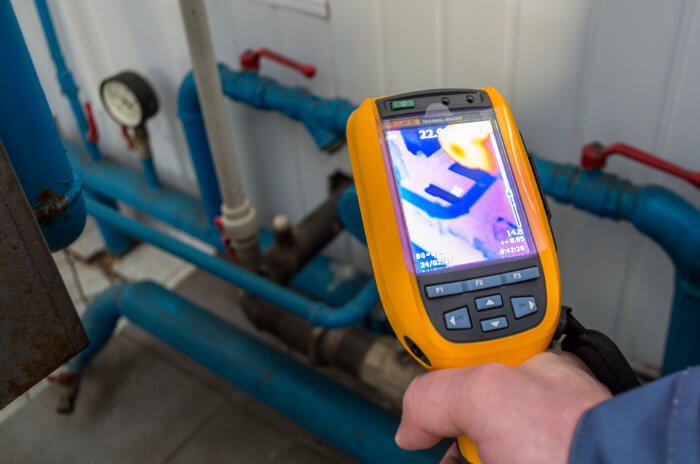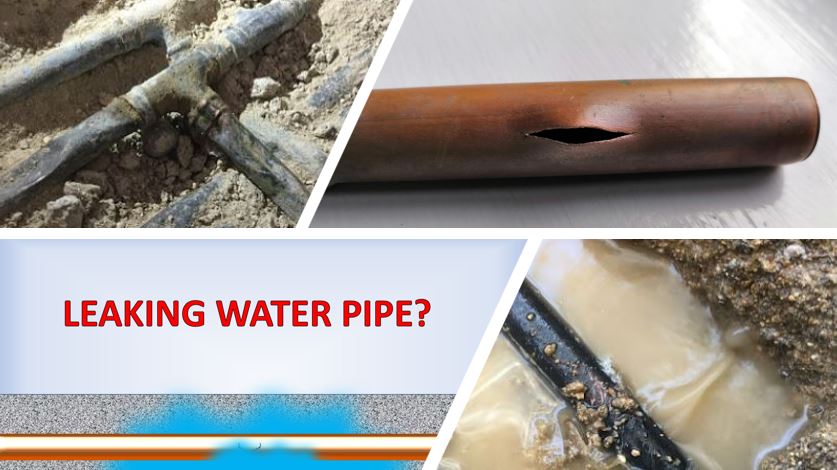The Hidden Dangers of Undetected Leakages: Why Drip Detection is Necessary
Shower Leak ===========
If you've ever before seen mystical dampness or water spots near your shower, you could be handling a shower leakage. These sly wrongdoers can trigger a lot more damage than fulfills the eye, potentially leading to mold growth and structural issues. leak detection specialist While some leaks appear, others call for a bit of detective work to reveal. Do not overlook the signs; resolving a shower leak without delay can conserve you from extra substantial repair services down the line.

Secret Takeaways
- Examine grout and seals for wear
- Address leaks promptly to prevent damages
- Examine drainage system for concerns
- Seek expert help for complicated leaks
- Usage waterproofing techniques for avoidance
Typical Sources Of Shower Leaks
Shower leakages usually take place because of damaged seals or broken floor tiles in the shower unit. If you observe water leaking with the walls or flooring after a shower, it may be time to attend to these usual reasons. To prevent further damage, think about investing in waterproofing remedies to safeguard your shower from leakages. Routine pipes maintenance can likewise help identify and fix any underlying concerns before they escalate.
When it pertains to tile grout issues, the gaps in between tiles can weaken over time, causing water penetration. Expert repair services can reseal the grout lines and protect against leaks from establishing. Keep an eye out for any kind of indicators of damage on the floor tiles, as these can contribute to water finding its way right into the walls or subfloor.
Signs of a Shower Drip
Keep an eye out for moist places or water stains on the wall surfaces and ceilings surrounding your shower, as these can suggest a potential leakage problem. Water damages is a clear indicator of a shower leak. If you notice peeling off paint, gurgling wallpaper, or deformed drywall near your shower, there might be a leakage endangering the architectural honesty of your walls. An additional critical indication of a shower leakage is mold and mildew growth. Mold and mildew flourishes in moist atmospheres, making the location around a dripping shower a prime place for mold to spread. Keep an eye out for any kind of stuffy smells or noticeable mold and mildew growth on your walls, as these can signify a leak behind the scenes. Mold not just presents health threats yet likewise suggests that there is excess wetness existing as a result of a possible leak. Without delay resolving any type of indications of water damage or mold growth near your shower can help prevent additional damages and keep a healthy living setting.
Do It Yourself Shower Leak Detection
To identify leaks in your shower by yourself, begin by examining the cement lines and seals for any signs of wear or damages. Search for staining, splits, or gaps where water could leak via. An additional usual location where leaks happen is around the showerhead and tap. Switch on the shower and observe if water trickles from these fixtures when not being used. If you think a leak, you can perform a straightforward do it yourself test by blocking the drainpipe and filling up the shower frying pan with water to see if it holds.
If you locate any type of leaks throughout your detection procedure, it's important to address them quickly to stop further damage. While some small leakages can be fixed with DIY methods, more complicated issues may need specialist repair service. Waterproofing techniques such as applying a sealant to grout lines, utilizing waterproofing membranes, or replacing damaged seals can help stop leaks and preserve the honesty of your shower. Keep in mind, early detection and proper upkeep are key to avoiding costly repair services in the future.
Steps to Take Care Of a Shower Leak
Begin by analyzing the resource of the leak in your shower to identify the proper strategy for fixing. If the leak is around the shower head, check for loosened connections or damaged seals. Tighten up any type of loose parts or replace the seals if needed. For leaks stemming from the drainage system, examine the pipes for fractures or blockages. Clear any obstructions and seal any visible splits with water-proof sealants.
If you doubt concerning dealing with the leakage yourself, think about seeking expert assistance. A plumbing technician can examine the situation and offer the very best service for your details leakage concern. They have the experience and tools to attend to extra complicated issues efficiently.


Keep in mind to check the shower after making repairs to confirm the leak has actually been settled. Normal upkeep of the shower head and drain system can help protect against future leaks. Remain proactive in looking for any type of indications of leaks to address them immediately.
Stopping Future Shower Leaks
To stop future shower leaks, consistently evaluate the cement and caulk in your shower area for any type of indicators of wear or damage. Appropriate installment of cement and caulk is important in preserving a water tight seal in your shower. If you notice any fractures or spaces, reapply caulk or cement as needed to prevent water from leaking right into the walls. Additionally, think about applying waterproofing methods during your normal maintenance routine to fortify the shower's defenses against leakages. Applying a water-resistant sealant to the cement and caulk can give an additional layer of defense.
Integrating preventative procedures into your shower upkeep plan is crucial for staying clear of future leaks. By resolving issues immediately and carrying out regular inspections, you can catch possible leaks beforehand and avoid pricey water damages. Consider hiring professionals for upkeep jobs that need specialized expertise or devices to guarantee comprehensive treatment of your shower. Professional maintenance can aid identify and resolve any kind of underlying concerns before they escalate into substantial troubles, ultimately lengthening the lifespan of your shower and preventing leakages.
Regularly Asked Questions
Can a Shower Leak Cause Mold And Mildew Growth in My Bathroom?
Yes, a shower leak can cause mold growth in your washroom. To stop mold and mildew, warranty proper air flow and waterproofing in your bathroom. Routine upkeep of your shower location is essential to prevent leakages that can cause mold and mildew problems. Keep your shower room well-aired and completely dry to discourage mold and mildew development. On a regular basis check and resolve any leakages without delay to keep a mold-free setting in your restroom.
Is It Necessary to Hire an Expert for Shower Leakage Fixes?
You might consider tackling shower leakage repair services by yourself prior to calling a specialist. Do it yourself alternatives can supply significant expense financial savings. If you fit with basic pipes jobs and have the right devices, you might potentially fix the leakage on your own. Nonetheless, if the issue is intricate or you're not sure regarding your skills, it's ideal to hire a professional to assure the repair service is done correctly and protect against any further damages.
How Can I Tell if the Shower Leak Is Destructive My Walls?
To spot if a shower leak is harming your walls, watch out for signs like peeling paint, mold growth, or soft places. Avoidance is vital, so address leakages immediately. Make use of a wetness meter to check for hidden damage. Examine grout lines and caulking routinely. Think about waterproofing items for added defense. Taking action early can conserve you from expensive repairs in the future.
Exist Any Surprise Expenses Related To Repairing a Shower Leak?
When considering fixing a shower leakage, there can be hidden prices to remember. Relying on the intensity of the leakage, there may be extra costs beyond just repairing the preliminary issue. Selecting a do it yourself method could conserve cash upfront, however otherwise done correctly, it might lead to long-term repercussions like more water damage. Hiring an expert might include higher expenses at first but can stop much more extensive and expensive repair work down the line.
Can a Shower Leakage Lead to Architectural Damages in My Home?
A shower leakage can undoubtedly lead to substantial structural damage in your home if left uncontrolled. It is very important to resolve any type of leakages quickly to prevent water from leaking into wall surfaces or floors, triggering prospective problems. It's important to examine your home insurance plan to see if it covers such problems. While some may attempt do it yourself solutions, it's a good idea to consult an expert to make certain the problem is dealt with appropriately and protect against additional damages.